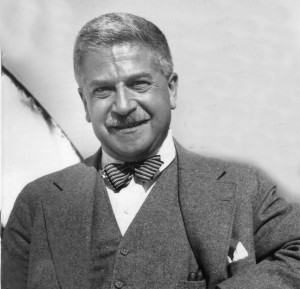 London Piano Institute is the U.K.’s only piano school for adults only. Located in central London, London Piano Institute offers the highest quality instruction in classical, jazz, pop, rock and blues piano using the latest and most effective adult instructional methods developed by renowned piano pedagogue Celine Gaurier-Joubert. Here a top instructor at London Piano Institute discusses one the greatest masters of the keyboard, Artur Schnabel.
London Piano Institute is the U.K.’s only piano school for adults only. Located in central London, London Piano Institute offers the highest quality instruction in classical, jazz, pop, rock and blues piano using the latest and most effective adult instructional methods developed by renowned piano pedagogue Celine Gaurier-Joubert. Here a top instructor at London Piano Institute discusses one the greatest masters of the keyboard, Artur Schnabel.
A Gathering of Experts: Who was Artur Schnabel?
London Piano Institute: He was an Austrian classical pianist, teacher and composer.
A Gathering of Experts: In what era did he live?
London Piano Institute: He was born April 17, 1882, and died April 15, 1951. He was one of the great pianists of the 20th century.
A Gathering of Experts: What was his specialty?
London Piano Institute: He specialized in the great Austrian and German composers, specifically Beethoven and Schubert, although he played others as well.
A Gathering of Experts: What set him apart?
London Piano Institute: He was recognized for his intellectual seriousness when approaching the repertoire and avoiding pure technical bravura.
A Gathering of Experts: Was that received well?
London Piano Institute: Yes, indeed. He has been hailed for his “interpretive penetration.” Harold C. Schonberg, once chief music critic for the New York Times, called him “the man who invented Beethoven,” meaning that he established authoritative interpretations that have stood the test of time.
A Gathering of Experts: Where was he born?
London Piano Institute: Born in Lipnik near Bielitz, Galicia, Austro-Hungarian Empire (today a part of Poland), Schnabel was the youngest of three children born into a Jewish family. At an early age, however, his family moved to Vienna, Austria.
A Gathering of Experts: Was he a child prodigy?
London Piano Institute: Evidently, yes. At the age of 2 he took an interest in his older sister’s piano lessons and his talent became obvious. At age 6 he began piano studies at the prestigious Vienna Conservatorium and by age 9 was a student of the famed pedagogue Theodor Leschetizky.
A Gathering of Experts: What came next for him?
London Piano Institute: He continued to study piano and music theory and became acquainted with famous pianists and composers of his day, including Johannes Brahms. He made his concert debut in 1897 in Vienna.
A Gathering of Experts: Did he become a touring artist?
London Piano Institute: Yes, he gave concerts throughout the region including Budapest, Prague and Brunn (in today’s Czech Republic). In 1898 he moved to Berlin where he gained fame as an orchestral soloist.
A Gathering of Experts: Did he tour outside of central Europe?
London Piano Institute: After World War I he gave concert tours in Russia, England and the United States.
A Gathering of Experts: Was there a focus to his performing during this time?
London Piano Institute: He became known for his chamber music and formed a number of variations of the Schnabel Trio with famous violinists and cellists of his day. He also performed with contralto Therese Behr, who became his wife.
A Gathering of Experts: Did he leave Germany before World War II started?
London Piano Institute: Yes, with the rise of the Nazi party, he left Berlin in 1933 for England and finally America in 1939.
A Gathering of Experts: Did he ever return to Germany or Austria after the war?
London Piano Institute: No, despite many concert tours in other parts of Europe he never did.
A Gathering of Experts: What were the standards of his repertoire?
London Piano Institute: He remained devoted to the core German composers but also included the piano masterworks of Bach, Mozart, Schumann, Weber and Liszt.
A Gathering of Experts: He is known for the difficult late Beethoven piano works, is he not?
London Piano Institute: Yes, indeed, although he recognized that as enjoyable as they were for the pianist to master, they could be challenging for an audience to enjoy.
A Gathering of Experts: How about Schnabel as composer?
London Piano Institute: As conventional as his repertoire was, it is interesting to note that his compositions were very modern in style, since he wrote in the atonal and 12-tone style, which feature the dissonance typical of mid-20th century classical music.
